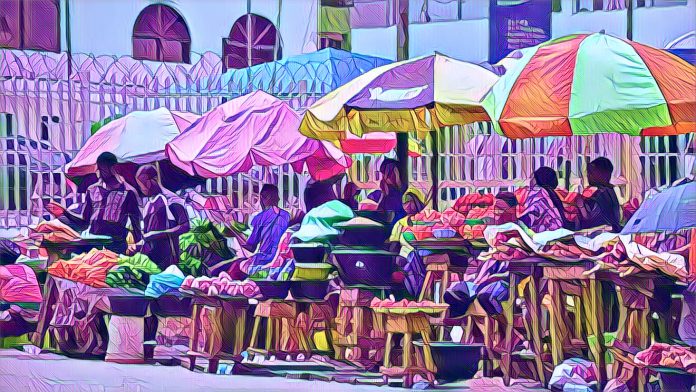KEY POINTS
- Nigeria’s inflation rate dropped to 23.18% in February 2025, down from 24.48% in January, marking the first significant decline in over a year.
- Food inflation decreased to 23.51%, but regional disparities persist, with Edo, Enugu, and Sokoto recording the highest rates, while Kaduna, Akwa-Ibom, and Plateau saw the slowest rises.
- Economists caution that while the decline is positive, structural reforms and sustained efforts are needed to address high inflation and ensure long-term economic stability.
In a promising sign for Nigeria’s economy, the National Bureau of Statistics (NBS) announced on Monday that the country’s inflation rate dropped to 23.18% in February 2025, down from 24.48% in January.
This marks the first significant decline in inflation in over a year, offering a glimmer of hope for citizens grappling with rising costs of living.
The NBS reports that the figures in its February 2025 Consumer Price Index (CPI) report, stating that the headline rate decreased by “1.30% points compared to the January 2025 headline inflation rate.”
The bureau also noted that the year-on-year rate for February 2025 was “8.52% lower than the rate recorded in February 2024, which stood at 31.70%.” This decline, though modest, signals a potential shift in Nigeria’s economic trajectory, which has been plagued by high inflation for years.
“The February 2025 headline inflation rate eased to 23.18% relative to the January 2025 headline inflation rate of 24.48%,” the NBS stated. “On a month-on-month basis, the headline inflation rate in February 2025 stood at 2.04%.”
Food Inflation Shows Improvement, but Regional Disparities Persist
One of the most significant aspects of the report was the decline in food prices, which stood at 23.51% in February 2025, down from 26.08% in January.
The NBS attributed this improvement to a change in the base year used for calculations, as well as a decrease in the prices of key food items such as yam, potatoes, soya beans, and maize.
However, the report also highlighted stark regional disparities in food inflation. Edo State recorded the highest food inflation rate at 33.59%, followed by Enugu (30.72%) and Sokoto (30.19%). In contrast, Kaduna (15.45%), Akwa-Ibom (15.53%), and Plateau (15.74%) recorded the slowest rises in food inflation.
On a month-on-month basis, Sokoto (11.98%), Kogi (11.38%), and Edo (8.87%) saw the highest increases in food prices, while Kaduna (-8.83%), Ondo (-4.78%), and Plateau (-3.73%) experienced declines.
These disparities underscore the uneven impact of inflation across Nigeria’s diverse regions, with some areas continuing to struggle with high food prices.



